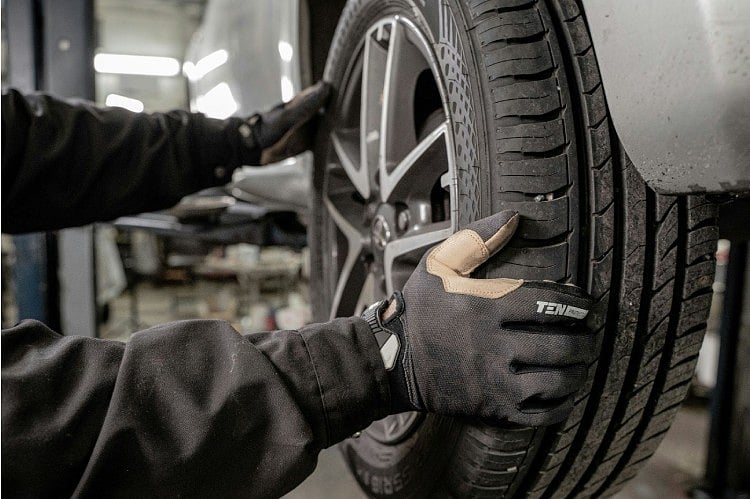Knowledge Hub
Knowledge Hub

Home Insurance Guide: Understanding What Over- & Under-Insurance Means
Home and Leisure
May 17, 2022
Paying more than you need to for home insurance is a needless waste of money, but being caught without enough coverage can be even more expensive. The truth is that both over-insurance and under-insurance can leave you significantly out of pocket. So, how do you get your coverage just right? Dialdirect can help you to understand all of the criteria, ensuring your home insurance policy is tailored to your exact needs.
What is home insurance?
Your home is likely to be your most important and valuable possession and getting the right homeowner’s insurance is essential. Home insurance is made up of different kinds of insurance policies that will cover you if your home or any of your belongings are damaged or suffer a loss. It could also cover you if a visitor is accidentally injured on your property.
There are different kinds of home insurance policies that focus on different aspects of your home.
Firstly, there is home contents insurance. This policy insures your home contents, including furniture and valuables, against damages from unforeseen events such as fire or water damage, as well as theft. Household insurance can also include cover for an injury that may occur in the home and, in addition, any personal liability claims. This type of policy is useful for both homeowners and those who are renting a property.
Another type of home insurance policy is buildings insurance. This cover protects you from any damage done to the physical structure of your property such as the walls, roof and garage. This policy is useful for both homeowners and investors who own a property that they rent out.
The difference between over-insurance and under-insurance
While being over- or under-insured can cost you a lot of money, this financial loss happens in different ways and those with household insurance[1] need to be mindful of both.
Over-insurance: a definition
Over-insurance is when you insure your property for more than it is worth. For a policyholder, this is a huge waste of money because you will be paying more for your premiums than your property is worth.
Not only is over-insurance bad for the policyholder, but it can also cause a headache for insurance companies because it can create situations where a policyholder is tempted to put in a false claim to try to benefit from a loss. To stop this from happening, insurers will only pay out the maximum of what the rebuilding costs of the property are.
Let’s look at Tony’s situation. His property has been insured for R1,200,000. If something happens, such as a fire, and part of his home has to be rebuilt, the replacement cost might be determined to be only R600,000. Tony will have paid more on premiums than he will be paid out by his insurer.
So the big question is: how do we make sure our properties are not over-insured?
-
Every so often – annually is a good idea – ask your insurer to update your home’s replacement cost estimates to check if your coverage needs to be adjusted.
-
Base the amount to be insured on current building costs, not on market value. You can ask a builder how much it would cost to rebuild your house.
-
Do not include the price of the land.
Under-insurance: a definition
When your home is under-insured, it means that your home insurance policy is for less than it will cost to rebuild your property or to replace your possessions. While this may seem attractive at first – because your premiums are lower – it can leave you at risk of suffering serious financial loss if ever a claim needs to be submitted. Insurance is there to cover enough of your expenses if something bad happens, but if you are under-insured you will face a shortfall if you do submit a claim.
Lisa, for instance, insured her home and its contents for R1,000,000, but there was a flash flood in her area that destroyed both her home and everything in it. The cost of replacing everything came to R1,500,000. This would mean she has to pay the shortfall of R500,000, which she might not have.
To summarise: these are the major differences between over-insurance and under-insurance:
Over-insurance
-
With over-insurance, your property is insured at more than its market value.
-
When you are over-insured, you will be paying too much in monthly or yearly premiums because the value of your property is less than you are insuring it for.
Under-insurance
-
When you are under-insured, your property is insured for less than its replacement value.
-
With under-insurance, you will be paying less on premiums, but if ever you need to submit a home insurance claim, you will have to pay more to cover part of the rebuild or replacement costs yourself.
One way to make sure you insure your home and its contents for the right amount is to keep your insurer updated on any changes.
A few other tips to help you:
-
Look at replacement costs and not just market value.
-
Create an inventory list of all the contents in your home that you want to be insured. Update this list at least once a year to include new items and keep inflation in mind.
-
Look at current construction costs and determine how much it will cost to rebuild your home.
-
Include coverage for additional living expenses in case you need to live away from your home while it is being rebuilt.
-
Get expert advice.
Get a home insurance quote from Dialdirect
To get the best advice on what the right amount of cover for your home is, call Dialdirect today for a home insurance quote. We will give you the peace of mind of knowing your home and most important possessions are properly insured.
Sources:
[1] Forbes: Homeowner’s insurance guide for beginners
Disclaimer: Dialdirect Insurance is a licensed non-life insurer and financial services provider. Terms and Conditions online.

We have great insurance products
Need car, home & Life Insurance? We offer a wide range of insurance products. Switch & get cash back on insurance premiums.







